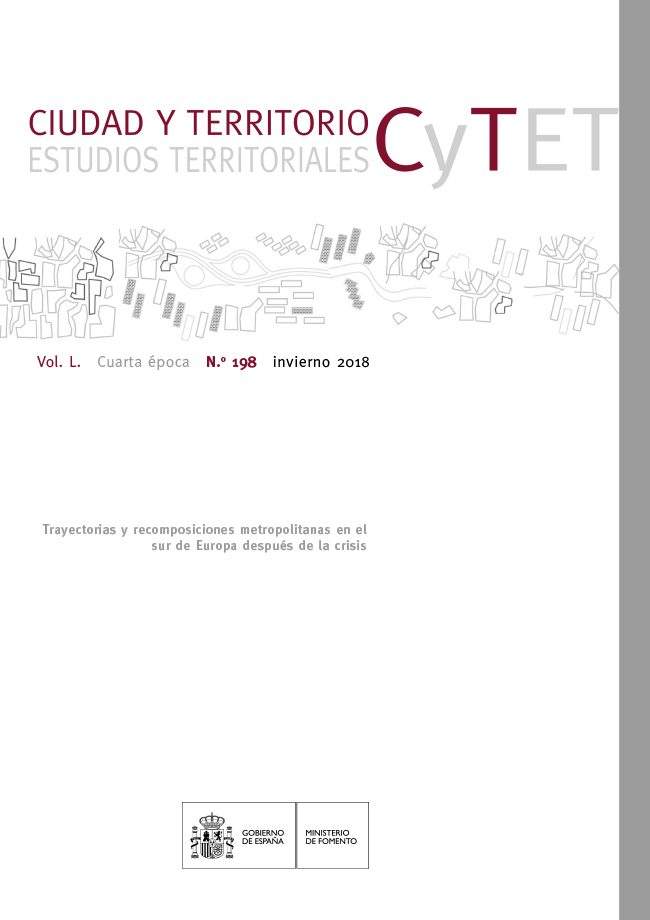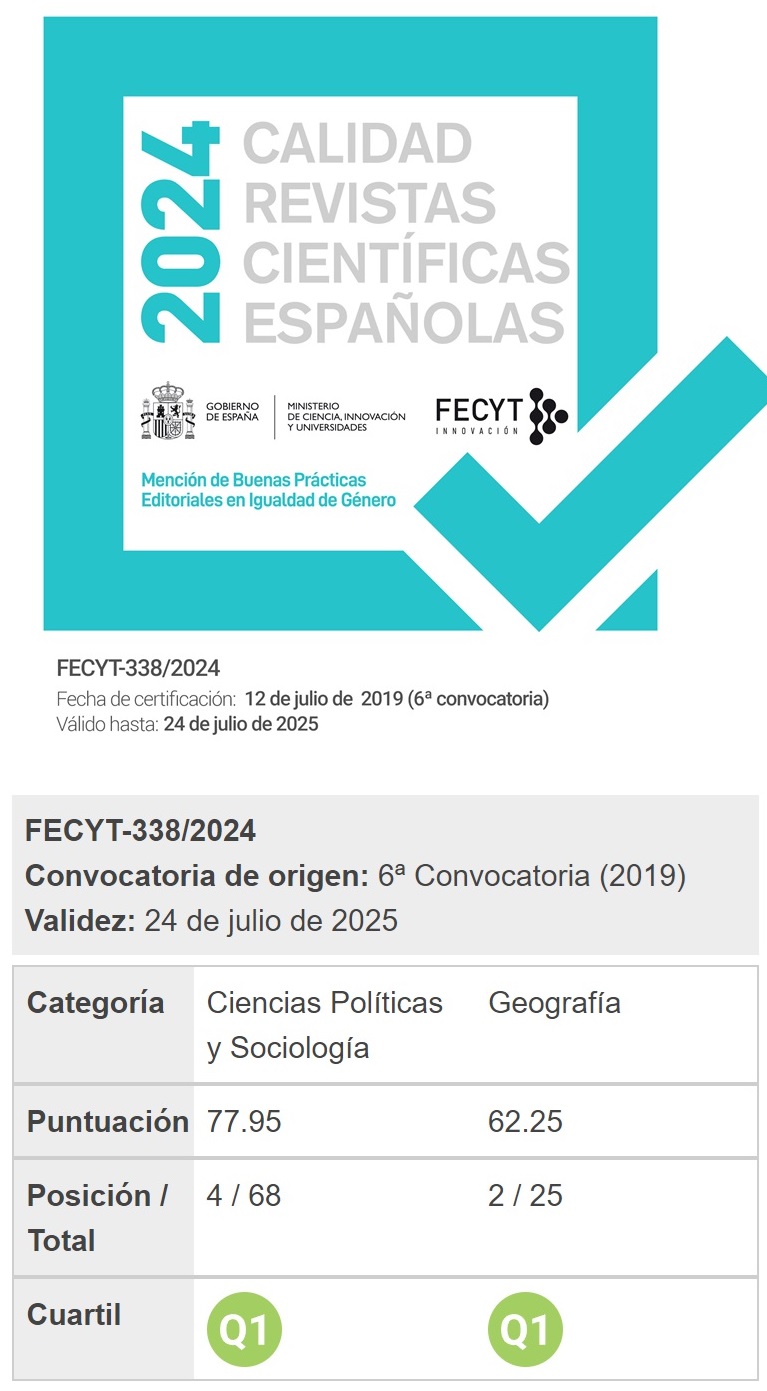Crisis griega: financiarización de la vivienda y nuevas geografías en una metrópolis mediterránea, Atenas
Palabras clave:
Crisis griega, financiación, endeudamiento, AtenasResumen
Intentamos resaltar los cambios en el sistema de vivienda griego en la década de 2000, centrándonos en la interconexión entre la vivienda y el sistema de préstamos hipotecarios antes y durante el régimen de austeridad griego. Más específicamente, el objeto de estudio es la interrupción del sistema de vivienda, desde el punto de vista del mercado financiero, debido a la participación de los principales actores económicos que invierten en él y, en particular, el sistema financiero, para el cual la vivienda se ha convertido en un área de inversión principal durante la década de 2000. ¿Cómo se ha ido vinculando gradualmente la vivienda con la deuda, al deconstruir el papel de la vivienda de posguerra concebido como “ascenso social”? ¿Cómo ha ocurrido que la deuda por comprar una casa / apartamento ha llevado a una considerable “precariedad” con respecto al acceso a la vivienda para personas de ingresos bajos y medios, así como para grupos vulnerables y, a menudo, invisibles para los “grandes inversores”? Estas preguntas cuentan con una literatura relativamente rica en otros países europeos, pero son poco estudiadas en Grecia, por lo cual quedan fuera del discurso dominante. Finalmente, ¿es la financiarización griega de la vivienda el símbolo de una crisis de vivienda en la Grecia del siglo XXI o un síntoma de las tendencias de occidentalización de una economía familiar, local y balcánica?Descargas
Descargas
Publicado
Cómo citar
Número
Sección
Licencia
Derechos de autor 2018 Eleni Patatouka, Guy Burgel

Esta obra está bajo una licencia internacional Creative Commons Atribución-NoComercial-SinDerivadas 4.0.
Sin perjuicio de lo dispuesto en la legislación vigente sobre Propiedad Intelectual, y conforme a la misma, el/la los/las autor/a/es/as que publiquen en CyTET cede/n a título gratuito, de modo no exclusivo y sin límite temporal al Ministerio de Transportes, Movilidad y Agenda Urbana los derechos para difundir, reproducir, comunicar y distribuir en cualquier formato actual o futuro, en papel o electrónico, la versión original o derivada de su obra bajo licencia de Creative Commons Reconocimiento-NoComercial-SinObraDerivada 4.0 Internacional (CC BY-NC-ND 4.0), así como para incluir o ceder a terceros la inclusión de su contenido en índices, repositorios y bases de datos nacionales e internacionales, con referencia y reconocimiento en todo caso de la autoría del mismo.
Además, al realizar el envío, el/la los/las autor/a/es/as declara/n que se trata de un trabajo original en el que se reconocen las fuentes que han sido utilizadas en su estudio, comprometiéndose a respetar la evidencia científica y a no modificar los datos originales para verificar o refutar una hipótesis de partida; que el contenido esencial del mismo no ha sido publicado previamente ni se publicará en ninguna otra obra o revista mientras esté en proceso de evaluación en la revista CyTET; y que no se ha remitido simultáneamente a otra publicación.
Los autores deben firmar un Formulario de Cesión de Derechos, que les será enviado desde la Secretaría de CyTET una vez se acepte su artículo para ser publicado.
Con el objetivo de favorecer la difusión del conocimiento, CyTET se adhiere al movimiento de revistas de Open Access (OA) y entrega la totalidad de sus contenidos a diversos índices, repositorios y bases de datos nacionales e internacionales bajo este protocolo; por tanto, la remisión de un trabajo para ser publicado en la revista presupone la aceptación explícita por parte del autor/a de este método de distribución.
Se anima a las/os autoras/es a reproducir y alojar sus trabajos publicados en CyTET en repositorios institucionales, páginas web, etc. con la intención de contribuir a la mejora de la transferencia del conocimiento y de la citación de dichos trabajos.








 Enlace a CyTET en Linkedin
Enlace a CyTET en Linkedin